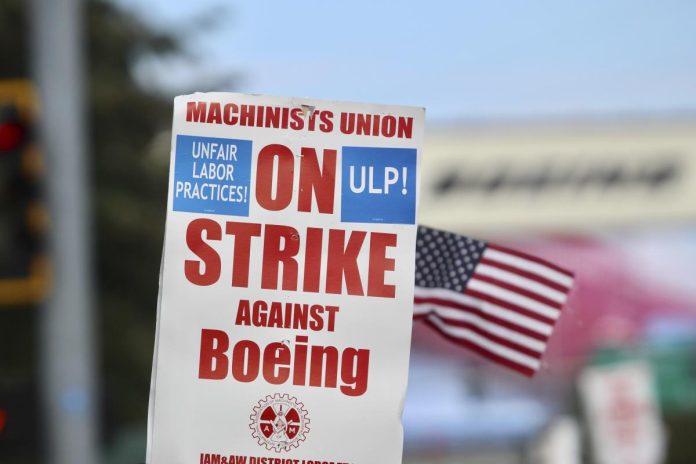Boeing shares rose 3.5 per cent on Friday after falling 8.3 per cent since the strikes began. The rise comes amid speculation that a new wage offer to workers at the aircraft maker’s West Coast plant in the US could end a seven-day strike.
The strike has halted production of Boeing’s best-selling 737 MAX aircraft as well as the 767 and 777 wide-body jets, leading to a $6 billion loss in the third quarter and complicating Boeing CEO Kelly Ortberg’s recovery efforts. Boeing’s recent capital increase puts it in a stronger bargaining position.
Some 33,000 machinists will vote Monday on a new wage proposal that calls for a 38 per cent pay raise over four years, up from a previous offer of 35 per cent. They had previously rejected two previous proposals in votes on 12 September and 23 October, but the latest offer adds a $12,000 ratification bonus but fails to meet workers’ demands to restore defined benefit pensions.
Ortberg on Friday urged workers to accept the deal, saying in a memo to staff. She said it was time to “focus on rebuilding the business and delivering the world’s best airplanes.” However, the workers split into two camps. Some said they were ready to end the gruelling strike, while others were determined to secure a full 40 per cent pay rise.
Besides, in favour of accepting the offer, the machinists’ union said it had pressed the company for what it could, but warned that future offers could be regressive. In addition, workers have the option of transferring a lump sum of $5,000 from the bonus into their 401(k) retirement account or receiving cash.
The option, combined with the possibility that 20 per cent of workers’ paychecks will go into retirement accounts, could sway advocates of strict pension policies, according to Jefferies analyst Sheila Kahyaoglu. This is due to the fact that workers lost an average of $10,400 in wages during the strike, eclipsing the average first-year wage increase under the proposal.
